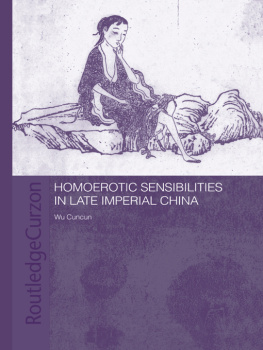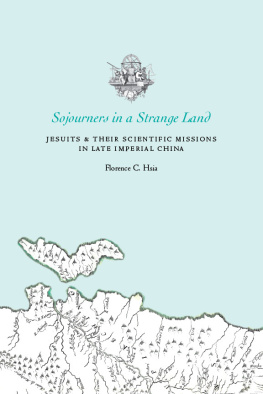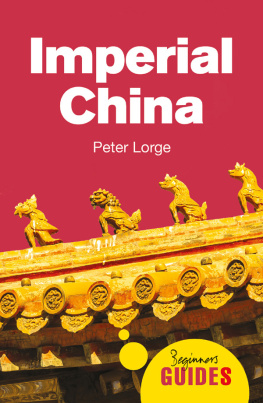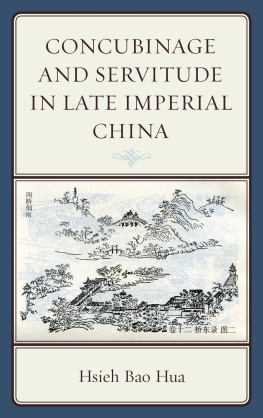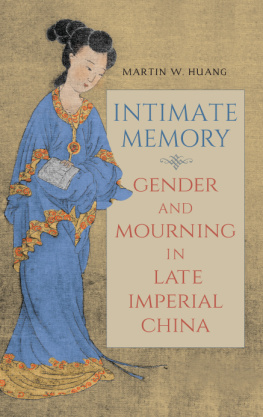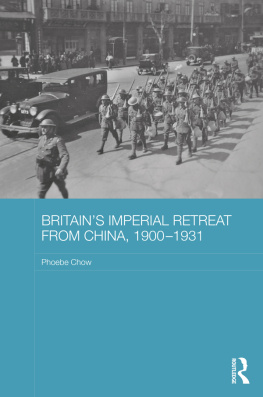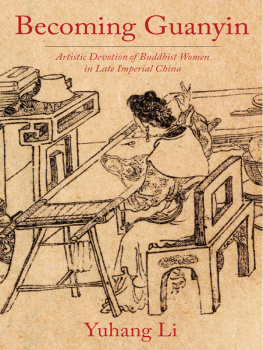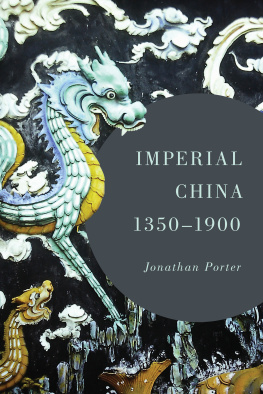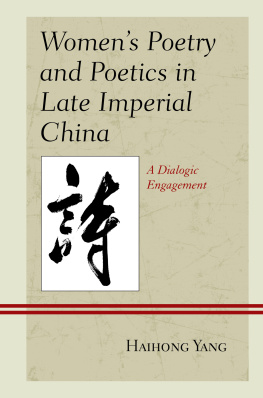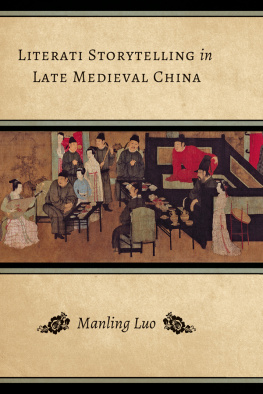Acknowledgements
When I first arrived in Australia in 1998 I came on a teaching exchange and had no intention of pursuing research while overseas. Initially I felt lost in an ocean of unfamiliar sensations and discourses. I was nevertheless fortunate to find a growing circle of friends and teachers who encouraged me to enter different ways of thinking about my research, and who helped me to overcome an array of shortcomings and obstacles. They have all continued to assist me in ways I will never be able to repay.
My first debt of gratitude is to Dr Anne McLaren, who supervised my doctoral dissertation, first at La Trobe University and then at the University of Melbourne. Dr McLaren introduced me to the approaches of Western sinology and helped me to become familiar with the most important research relating to my own studies. She has also been a vigilant critic of my work, challenging me to consider many more aspects of the project than would have otherwise caught my attention. I feel very fortunate indeed to have had a supervisor able to offer such enormous amounts of time, encouragement and understanding. I could not imagine finding a more able and inspiring teacher. It was her continuing encouragement that led me to conceive of this book.
While at La Trobe University I also benefited greatly from the keen theoretical intelligence of Dr Chris Berry, who read all the early chapter drafts and introduced me to the history of gender and queer theory. I would also like to express appreciation for his continued assistance while writing this book, and I am delighted that he has been able to contribute the Foreword.
The doctoral research on which this book is based benefited from a number of scholarships and grants, including an International Postgraduate Research Scholarship, a La Trobe University International Postgraduate Research Scholarship and a Melbourne International Research Scholarship. A Fieldwork Grant from the Faculty of Humanities and Social Sciences at La Trobe University also allowed me to return to China to conduct research. At the end of 2001 I was fortunate to win a National Visiting Scholarship with the Australian National University, and benefited enormously from discussion with three leading scholars. Professor Mark Elvin read early versions of several chapters, and provided immediate and detailed feedback that had a real bearing on the later development of my argument. His generous interest enabled me to overcome several critical conceptual and translation difficulties. I must also thank Professor Geremie Barm and Dr Peter Jackson for discussion, advice and insight.
Over the years a number of libraries have offered me every form of friendly assistance, and I should express my appreciation especially to the staff of Nankai University Library; the National Library of China, Beijing; the East Asian Section, University of Melbourne Library; the National Library of Australia, Asian Collections; and the Australian National University Library.
A good deal of the material used in the development of this book was assembled in various academic roles over more than ten years, some of the results of which have appeared in a number of articles and one book published in Chinese. I would like to express my gratitude to former colleagues and friends in China who have provided me with much information and encouragement over the years during a period when the subject of homo-sexuality has not always been well understood. In particular I should thank Professors Ning Zongyi, Feng Erkang and Li Jianguo of Nankai University. I would also like to thank Professor John Fitzgerald at La Trobe University, who ensured continuity of support and encouragement, and my co-supervisor at Melbourne University, Dr Luo Yongxian. Professors Colin Mackerras and Kam Louie encouraged me enormously through their careful assessment of my thesis, and this book has benefited directly from their very expert suggestions. Professor Louie, in particular, has continued to encourage my research endeavours.
I also benefited from the support and insights of fellows students, particularly Fran Martin and Clodagh Wylie. More recently, my colleague and friend Isabel Tasker, other faculty colleagues and the Sexualities Research Group (UNESEX) at the University of New England have all offered me continuous encouragement.
I would like to thank the two anonymous readers at RoutledgeCurzon for their insightful observations. In London I am grateful for the support of Stephanie Rogers and Zo Botterill for taking on this project with true enthusiasm.
Finally, I am very grateful for the assistance of Dr Mark Stevenson, School of Social Sciences, Victoria University. When I first arrived in Australia my facility in English expression was very limited and I was completely new to the conventions and methods of Western academic discourse. I have benefited from Dr Stevensons time and assistance with the organization of this book at every stage of its production. His understanding of Chinese culture and his literary ear have greatly improved the translations from Chinese literature on which much of the argument for this book depends. This book would never have seen completion without our continuing dialogue on many critical issues.
Wu Cuncun
Appendix Transliteration of Chinese characters
Transliteration of Chinese characters
| Abao |  |
| Aina Jushi |  |
| Anhui |  |
| baguo lianjun |  |
| baihua xiaoshuo |  |
| baixing riyong |  |
| bangyan |  |
| bangzi |  |
| Banqiao zixu |  |
| Baohe |  |
| baotou |  |
| Baoying |  |
| Baoyu |  |
| Beijing zhengzong aiguo bao |  |
|

